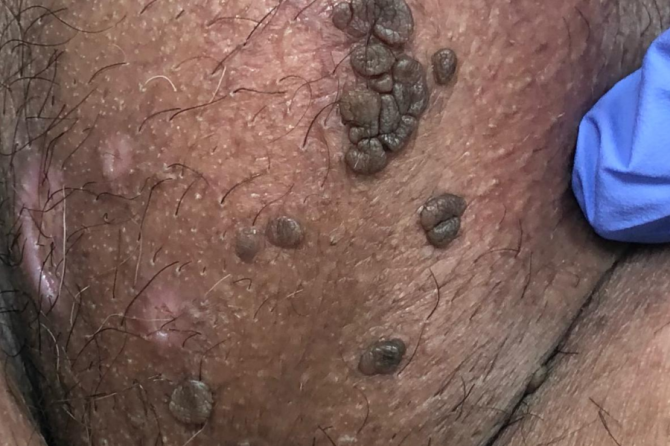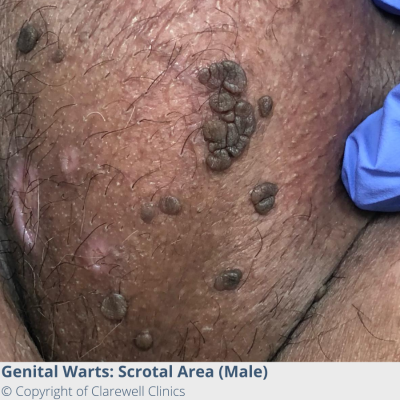
Genital Warts: Treatment, Prevention, FAQ
Genital warts, otherwise known as condyloma acuminatum, are soft, fleshy growths that appear on or/and within the private part. They can cause pain, discomfort, and itching. The warts could be just mild, appearing on the thighs or severe enough to for a giant mass covering the entire genital area.
In this write up, we would be discussing the Treatment and Prevention of genital warts as well as the Frequently Asked Questions that people ask of the warts.
See also:
- Genital Warts: Causes, Transmission, Symptoms
- Genital Warts: where they appear, complications, diagnosis
How are genital warts treated?
Human Papillomavirus is known to linger on skin cells even when the obvious warts have disappeared through the help of treatment. The further presence of this virus on skin predisposes to several outbreaks over the course of your life. This presence can also infect anyone that indulged in unprotected sexual intercourse with you. Therefore, it is important to start by clearing off the symptoms to offer you a bit of rest of mind.
However, the presence of the virus does not automatically mean complications with genital warts. The infected person’s immune system most times clears the warts within 2 years in 2/3 of cases so treatment is often not necessary.

You may wish to treat the warts to relieve painful symptoms or to minimize their appearance.
Note: Over-the-counter (OTC) wart removers do less or nothing as treatment option for the warts in the genitals. Your physician, most especially a dermatologist or Gynaecologist, may prescribe topical wart treatments that might include:
- Imiquimod (Aldara)
- Podophyllin and podofilox (Condylox)
- Trichloroacetic acid, or TCA
Note that: Treatment results vary greatly. In some people there is instant success, in others it may take many months or have no success at all.
If visible warts do not go away with time, your doctor may recommend minor surgery to remove them or the doctor can also involve other procedures which may include:
- Electrocautery, or burning warts with electric currents.
- Cryosurgery, or freezing the warts.
- Laser treatments.
- Excision, or cutting off warts.
- Injections of the drug interferon
Whichever one your doctor does will be under your full approval and consent.
Does home remedies for genital warts work?
Like I said earlier, do not use commonly sold medications or treatments offered for warts in the hands on the warts in the genitals. It cannot work perfectly as both are caused by different strains of Human Papillomavirus and as such the treatment should vary and dependent on expert management.
So to avoid endangering your health while chasing solution for the warts in the genitals, consult your doctor before you use any home remedy.
How to prevent genital warts
Prevention, they say, is better than cure! Genital warts can be prevented with the use of vaccinations against the Human Papilloma Virus (HPV).
HPV vaccines (common ones are Gardasil and Gardasil 9) are very efficient in protecting men and women from the most common HPV strains that cause warts in the genitals, and in addition, women can also get some degree of protection from the common strains of HPV that can cause cervical cancer.
This vaccines work best for individuals between the ages of 9 years and 45 years. It is given in about two or three shots, depending on age. Both types of vaccine is best taken before you become sexually active, as they’re most effective before you are exposed to HPV.
Using a condom or a dental dam every time you have sex can also reduce your risk of contracting the warts, but as previously stated, it does not completely guarantee prevention, as contacts between areas not covered by the condom such as the Scrotal skin and the labia can also results in transmission. However, it can also protect against other STDs.
Conclusion:
Genital warts are a complication of sexually transmitted HPV infection that is common and treatable. Though they can disappear over time, treatment remains very essential in preventing their return and possible complications.
If you think you have warts in the genitals, talk to your physician. They can determine if you have warts and what your best treatment options are. Please do not resort to self-treatment as it does more harm than good.
If you are not yet sexually active, you can also utilize the vaccine to get your immune system boosted to attack the virus whenever it tries to invade your cells.
On the other hand, if you already have a sex partner and you think you have warts in the genitals, discussing with the person is very helpful to avoid infecting the person.
Frequently asked questions on Genital warts
How long do genital warts last?
Most genital warts will go away on their own, from a few months to two years.
What can be mistaken for genital warts?
Genital skin tags and genital warts are two common skin conditions. They can be confused for one another because of where they develop and how they look. Genital skin tags are round, soft skin growths that develop on a stalk. They look like tiny, deflated balloons. Other infections like Vaginitis, Trichomoniasis etc, with related symptoms can be confused with genital warts.
What is the fastest way to get rid of genital warts at home?
Apple cider vinegar may treat genital warts at home. It’s similar to prescription medications that use acidic ingredients to kill off the virus. You can soak a Q-tip, cotton ball, or gauze in apple cider vinegar and apply it to the warts. This does not take the place of your doctor and as such should depend on your doctor’s advice.
Are genital warts dangerous?
Genital warts are common and are caused by certain types of HPV. Genital warts can be annoying, but they are treatable and are not dangerous.
See also:
- Genital Warts: Causes, Transmission, Symptoms
- Genital Warts: where they appear, complications, diagnosis
Feel free to ask any questions you may have and I would do my best to answer you as soon as I can.
Also share this to enlighten others.



Knowing you have HERPES can be one of the most difficult experiences you go through in life. You may feel scared, sad or even angry – this is ok, and a completely natural part of coping with something that can be life changing.
ReplyIt will probably take a while for the news to sink in.
My name is Steven Jenkins and I am from the United States.
I remember spending so much money buying drugs from hospitals hoping that I will be cured from HERPES INFECTION, but all to no avail. I contacted so many doctors and they prescribed medicine for me which they indeed tried their best but was unable to provide for me a possible cure, luckily i saw a comment about a herbal doctor, (Dr.Okosun) online.
I then contacted him (Dr. Okosun) through his email, After much chatting and enquiry with the doctor, I decided to take a leap of faith because I have nothing to lose.
To my greatest surprise, Dr. Okosun prepared a medicine and sent me a Herbal Medicine through FEDEX courier Service, and he gave me guidelines on how to take it. I followed all procedures as instructed, and after 4 weeks of taking it I was cured from HERPES. His medicine is legit and it is real.
I just want to encourage all individuals out there living with HERPES , ITCHY SHINGLES , Genital Herpes, HSV1&2, HIV/AIDS/ HPV, COPD, CANCER, Hepatitis b, Lupus, PCOS, Kidney failure, Lung cancer and alot more. That there is still a huge chance that you can get cured only with the help of dr okosun. kindly contact him via email: drokosun55@gmail.com or whatsapp +2348124363791.
you can also visit his website https://drokosun55.weebly.com
here is my private email: stevenjenkins276@gmail.com in case you wanna know more about this great dr that cured me completely from herpes virus
Oral herpes is a bothering virus, but overcoming is possible, I was diagnosed with genital herpes type 1 (hsv1),i contacted Dr kokobi via his Email kokobiherbalremedycentre@gmail.com for treatment when i heard and read about Dr. kokobi on a forum. After Three weeks of herbal medication i went for test and i was tested negative from Herpes thank you Doctor, Here is Dr kokobi WhatsApp’s number +2349055346858
Reply